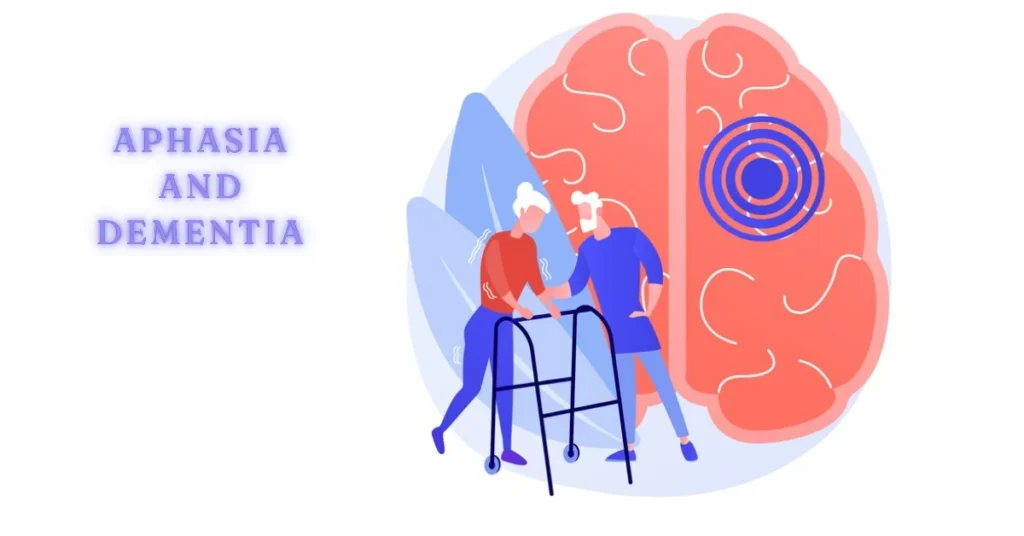After interconnected, dementia and aphasia are two separate neurological conditions that can significantly affect cognitive as well as communication functions. The most common cause of aphasia is generally stroke or brain injury, which can damage the language abilities of the patient.
On the other hand dementia affects the memory, reasoning and to some extent language as well. But is there any connection between the two? With this blog we will discussing all about it and the potential strategies, patients and caregivers can use.
Is Aphasia Linked to Dementia?
Several studies have been conducted to figure out the connection between aphasia and dementia, and the result states that both of them can co-occur. There are a few specific types of dementia, like Alzheimer’s disease and frontotemporal dementia (FTD), where cases of a mild form of aphasia can be witnessed.
Primary Progressive Aphasia (PPA) is a subtype of FTD that clearly demonstrates the intersection of these conditions. The main characteristic of PPA is a decline in language abilities, thus showcasing the interconnection of dementia and aphasia.
Biochemical and Functional Changes Between Dementia and Aphasia
Dementia and aphasia both have a shared biochemical mechanism that contributes to the co-occurrence of both diseases. The tau and amyloid-beta pathology in the Alzheimer’s disease can possible effect the brain regions that are responsible for language which can lead to aphasic symptoms. In fact, vascular dementia, which occurs due to cerebrovascular events, can induce aphasia and cognitive decline.
Top 7 Strategies for Caregivers
Caring for someone with aphasia and dementia can be a complex journey. Senior living communities have a good hold at handling patients suffering from such condition. Here are seven effective strategies for caregivers to support loved ones dealing with these conditions.
1. Use Simple and Direct Language
To facilitate communication with individuals experiencing aphasia or dementia, it is beneficial to speak slowly, clearly, and in simple sentences. Avoiding complex language as it can reduce confusion and frustration, allowing individuals with these conditions to process information more effectively. By simplifying language a more inclusive and supportive communication environment.
2. Incorporate Visual Aids and Gestures
For individuals struggling with aphasia and dementia, incorporating visual aids alongside spoken words can be helpful. Showing a picture of a glass when questioning about thirst is one way to do it. These visual hints can bridge the gap caused by limited language abilities, allowing individuals to better understand and respond to communication attempts.
3. Practice Patience and Listen Actively
Effective communication with individuals experiencing aphasia or dementia is crucial to provide ample time for them to process information and formulate responses. Refraining from interrupting or completing their sentences, even if it takes longer for them to articulate their thoughts, fosters a calm and respectful environment. This approach encourages them to communicate at their own pace, reducing feelings of rush and frustration and allowing them to express themselves as effectively as possible.
4. Create a Routine for Stability
Maintaining a structured daily routine, including regular activities like meals, exercise, and quiet time, can significantly benefit individuals with dementia. A consistent routine provides predictability, which can help reduce confusion, anxiety, and agitation. This is particularly important for individuals with dementia who may struggle with memory and orientation.
5. Encourage Nonverbal Communication
Encouraging nonverbal communication, such as facial expressions, hand squeezes, or pointing, can be a powerful tool for individuals with aphasia in dementia. These nonverbal hints can bypass language barriers, allowing them to express emotions and needs without relying solely on words. By fostering these alternative communication methods, caregivers can empower individuals to connect with others more effectively.
6. Engage in Therapeutic Activities
Individuals suffering from dementia or aphasia can witness profound impact by engaging in therapeutic activities like art therapy, music, or gentle physical exercises. Music therapy, in particular, has the power to trigger memories and uplift spirits. These activities not only enhance mood and reduce anxiety but can also improve cognitive and communication abilities by stimulating different areas of the brain.
7. Join a Support Group for Caregivers and Patients
Joining support groups can be a valuable resource for both caregivers and patients. These groups offer a space for individuals to connect with others facing similar challenges, providing emotional support and practical advice. Caregivers can learn effective coping strategies, while patients can benefit from social interaction and reduced isolation.
Wrapping It Up:
Patients suffering from dementia aphasia might find it frustrating to deliver what they have in mind into words. They might not be able to convey the best of their thoughts and may require major lifestyle adjustments. These adjustments are not just centered on patients; caregivers, too, have to change their lifestyles accordingly.
Each individual’s experience is different when it comes to aphasia in dementia. Therefore, it’s important to approach the issue with solutions that are tailor made for them. Senior living communities are well versed at handling these situations with utmost ease.
ALSO READ: Dr. Zena Al-Adeeb: Pioneering Medicine with Passion







